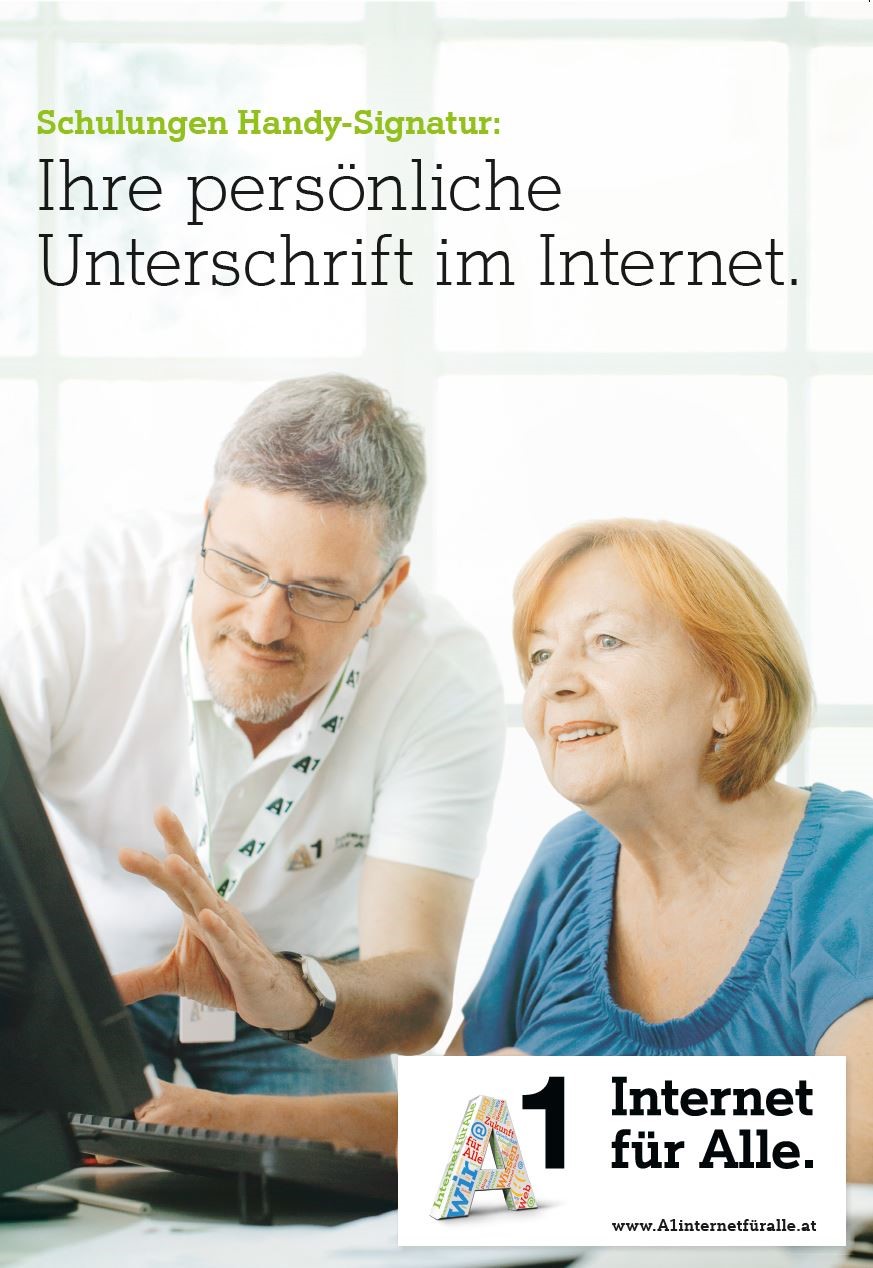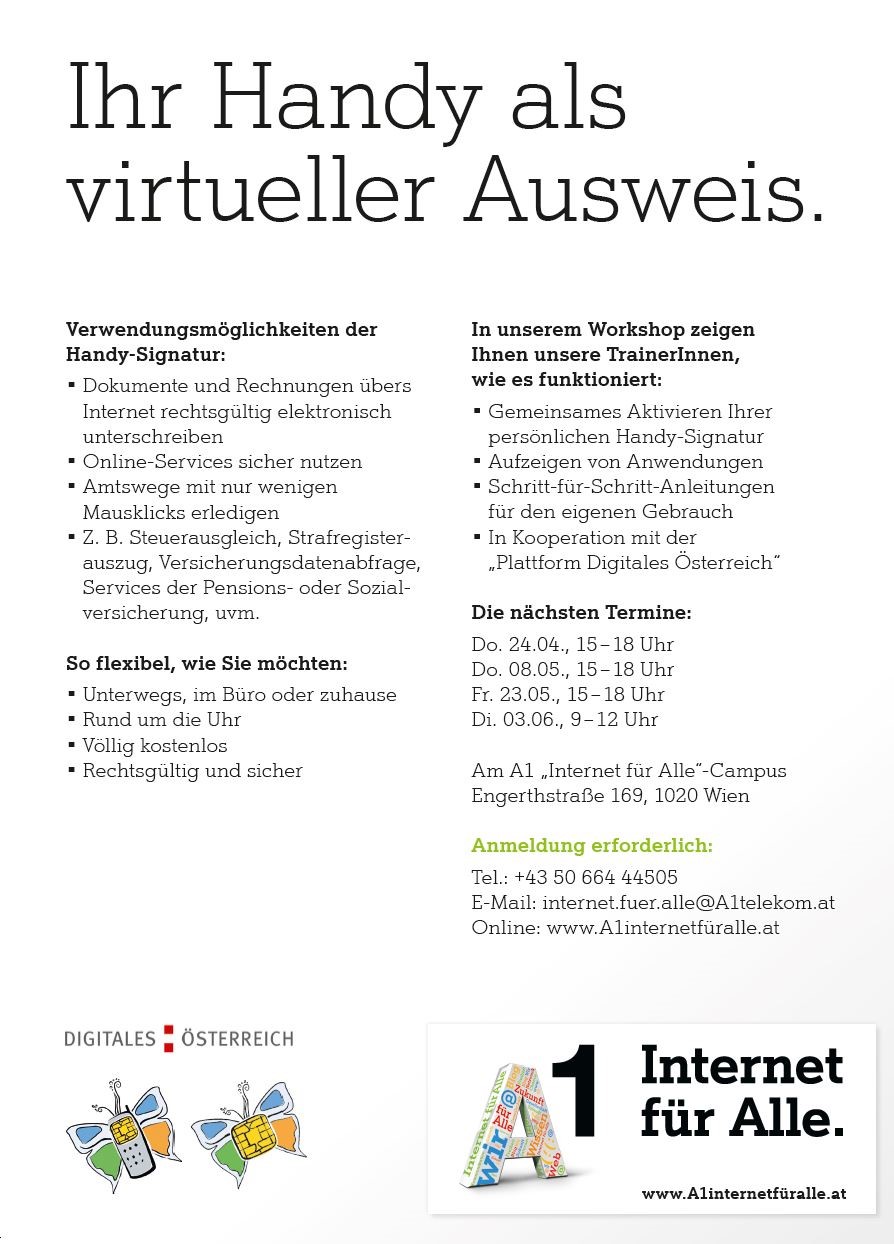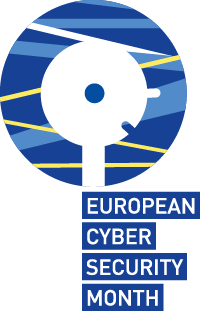"Structure of the study case to be used in the report "Public Private Partnerships in Network and Information Security Education" new version 2.0
Please answer to the following subsections:
1. Describe your initiative and the partners involved.
The Internet for all (IFA) initiative of the Telekom Austria Group (http://a1internetfueralle.at/impressum/; http://a1internetfueralle.at/) is based on the following principle
“Equity of access to information, knowledge and education: Whether economists, scientists and politicians, all agree that the Internet and the applications based on it are an important basis for economic growth and social progress.”
That is why the Telekom Austria Group has launched the initiative "A1 Internet for All". The initiative is aimed at developing a modern information, knowledge and network society. All citizens should have equal access to knowledge and education. Together with numerous partners, IT workshops are conceived and offered free of charge in the A1 Campus Vienna which is a training center of the Telekom Austria Group. The A1 staff plays an essential role in the overall initiative. They support and accompany the participants within the numerous internet workshops.
As one of the partners the Austrian Federal Chancellery is supporting and training the A1 staff especially in the field of electronic identities and electronic signatures. Though six times a year citizens have the opportunity to learn more about electronic identities (especially the Austrian mobile phone signature) and e-signatures and how or where to use them (official channels, signing contracts, etc.).
The mobile phone signature (http://digital.austria.gv.at/site/7589/default.aspx) was developed with support of the EU Commission in the large EU pilot project on interoperability of electronic identities called "STORK". It was activated during the last quarter in 2009. This solution makes it possible to use electronic signatures with a mobile phone. In contrast to the card-based citizen card, installing software and additional hardware (card reader) is no longer necessary.
The mobile phone signature functions similar to the solution banks use for e-banking. After successfully logging in with the access code (mobile phone number) and password, a TAN code is sent via SMS to the activated mobile phone. When the TAN code is entered in the respective application, a qualified electronic signature is created. This could also be a simple method for creating qualified electronic signatures on a mobile phone. This signature would be, just like in the card-based solution, the legal equivalent of a handwritten signature, and could be used everywhere, not only for procedures with public administration, but also in business, e.g., in e-banking. The mobile phone signature offers a user-friendly alternative to the well-known card-based citizen card, which is especially attractive for users who use it infrequently. Further information on the activation and usage options can be found at www.buergerkarte.at.
2. Is there any link to the Digital Agenda policy documents or strategic level documents implemented in your country?
Accessibility is one of the most important elements of the Austrian eGovernment strategy. Public authority services in Austria must be accessible to everyone without discrimination. eGovernment must be available to all classes and sections of the population, so that it cannot come to a "digital divide “. Not just the solutions but also the websites themselves must be accessible to all. Additional solutions, such as public Web terminals, should ensure that everyone is able to take advantage of eGovernment offerings. The workshops are an important step and a PPP best practice to sustainably reduce the digital divide.
3. What is the outcome, impact and the outreach of your initiative? any metrics used?
~ 6 mobile phone signature workshops per year and overall (including all courses) more than 60,000 visitors who have taken advantage of the Telekom Austria Group offer (98% would recommend the workshops to others).
4. Your approach towards partnership and coalition-building.
The Austrian Federal Chancellery generally supports initiatives to raise digital expertise within the population and improve accessibility. The Federal Chancellery mainly supports with know-how.
See also question 2: Prerequisite – a common aim: e.g. Accessibility and digital expertise for everyone
5. What are your plans for medium term?
An extension of the mobile phone signature courses to other locations is currently being reviewed. If the funding through the Telekom Austria Group can be ensured, an extension to 2 more locations in 2016 is planned.
6. Conclusions.
ANNEX& brochure




